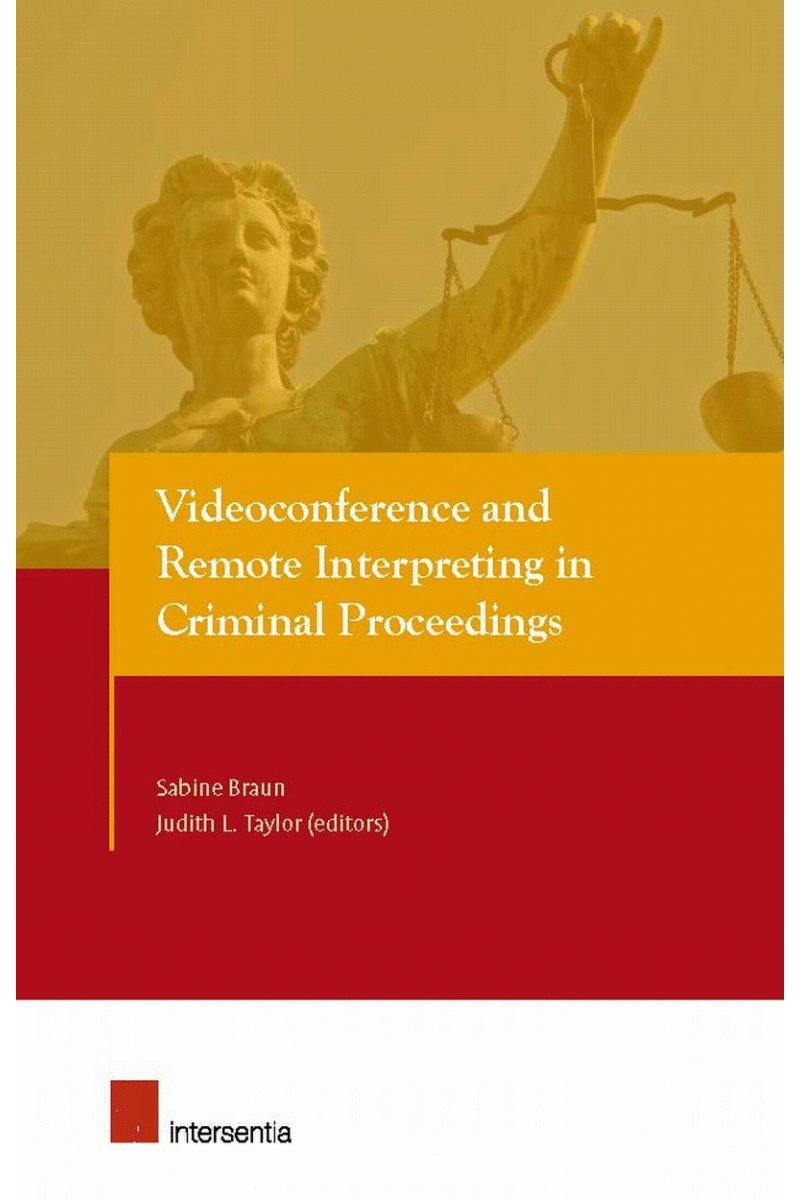 maestro
mastercard
visa
maestro
mastercard
visa

Videoconference and Remote Interpreting in Criminal Proceedings

In response to increasing mobility and migration in Europe, the European Directive 2010/64/EU on strengthening the rights to interpretation and translation in criminal proceedings has highlighted the importance of quality in legal translation and interpreting. At the same time, the economic situation is putting pressure on public services and translation/interpreting service providers alike, jeopardizing quality standards and fair access to justice. With regard to interpreting, the use of videoconference technology is now being widely considered as a potential solution for gaining cost-effective and timely access to qualified legal interpreters. However, this gives rise to many questions, including: how technological mediation through videoconferencing affects the quality of interpreting; how this is related to the actual videoconference setting and the distribution of participants; and ultimately whether the different forms of video-mediated interpreting are sufficiently reliable for legal communication. It is against this backdrop that the AVIDICUS Project (2008-11), co-funded by the European Commission’s Directorate-General Justice, set out to research the quality and viability of video-mediated interpreting in criminal proceedings. This volume, which is based on the final AVIDICUS Symposium in 2011, presents a cross-section of the findings from AVIDICUS and complementary research initiatives, as well as recommendations for judicial services, legal practitioners and police officers, and legal interpreters.
| Type of product | Book |
|---|---|
| Format | Paperback |
| EAN / ISSN | 9781780680972 |
| Weight | 552 g |
| Status | Available |
| Number of pages | vi + 328 p. |
| Access to exercice | No |
| Publisher | Intersentia |
| Language | English |
| Publication Date | Aug 16, 2012 |
| Available on Strada Belgique | No |
| Available on Strada Europe | No |
| Available on Strada Luxembourg | No |
Downloads
- Table of Contents
- Introduction
Sabine Braun, Judith L. Taylor - Section 1: Framework and context
- The new European Directive on the rights to interpretation and translation in criminal proceedings
Caroline Morgan - Videoconferencing in criminal proceedings
Evert-Jan van der Vlis - Section 2: Video-mediated interpreting in criminal proceedings: from practice to research
- Video-mediated interpreting: an overview of current practice and research
Sabine Braun, Judith L. Taylor - Video-mediated interpreting in criminal proceedings: two European surveys
Sabine Braun, Judith L. Taylor - AVIDICUS comparative studies – part I: Traditional interpreting and remote interpreting in police interviews
Sabine Braun, Judith L. Taylor - AVIDICUS comparative studies – part II: Traditional, videoconference and remote interpreting in police interviews
Katalin Balogh, Erik Hertog - AVIDICUS comparative studies – part III: Traditional interpreting and videoconference interpreting in prosecution interviews
Joanna Miler-Cassino, Zofia Rybinska - The police interview using videoconferencing with a legal interpreter: a critical view from the perspective of interview techniques
Dirk Rombouts - Here or there? An assessment of video remote signed language interpreter-mediated interaction in court
Jemina Napier - Section 3: Technology
- True-to-life requirements for using videoconferencing in legal proceedings
Ronald van den Hoogen, Peter van Rotterdam - Conference interpreting with information and communication technologies. Experiences from the European Commission DG Interpretation
José Esteban Causo - Section 4: Training
- Training in video-mediated interpreting in criminal proceedings: modules for interpreting students, legal interpreters and legal practitioners
Sabine Braun, Judith L. Taylor, Joanna Miler-Cassino, Zofia Rybinska, Katalin Balogh, Erik Hertog, Yolanda Vanden Bosch, Dirk Rombouts - Section 5: Conclusions and implications
- AVIDICUS: Conclusions and implications
Ann Corsellis - Recommendations for the use of video-mediated interpreting in criminal proceedings
Sabine Braun